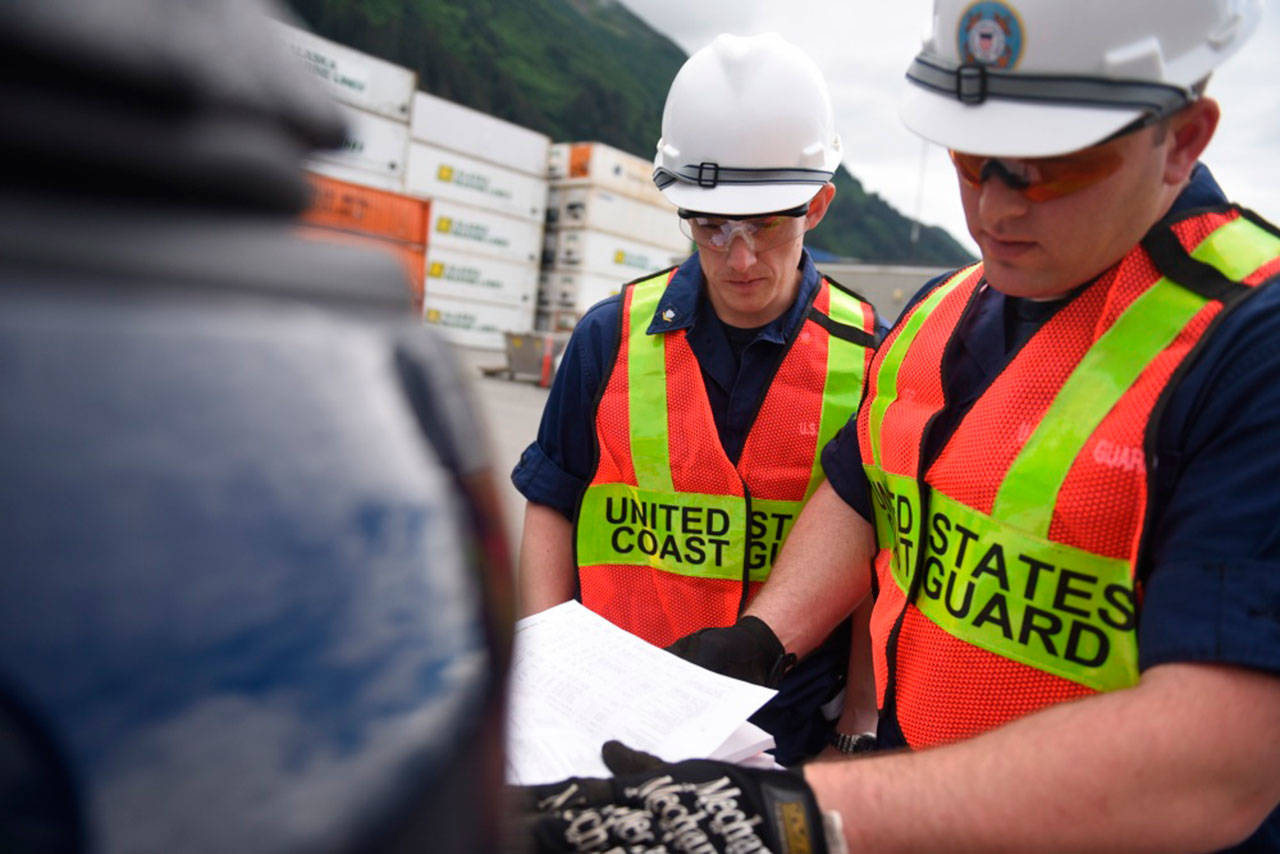Marine inspectors with the U.S. Coast Guard are working overtime, weekends and nights, without pay amid the federal government shutdown, to ensure vessel inspections are performed on time for Puget Sound’s fishing and ferry fleet operations.
“One of our concerns is that in a very dynamic ferry system, if a vessel has to be removed from service due to either a mechanical or system malfunction — that requires an inspection — the Coast Guard has to work around a limited amount of people,” said Dana Warr, a public information officer with the Washington State Ferries and former Coast Guard service member.
“We’re running ferries with mechanical parts and they need upkeep and repair,” he explained. “Things break down unexpectedly and we have concerns that our regulatory agency won’t be able to keep up with some of the concerns or issues that we may have.”
In addition to enlisted personnel who work as marine inspectors, the Coast Guard also employs nine civilian inspectors as well — all of whom have been furloughed.
“We know that there’s a reduced amount of inspectors that are available during the shutdown,” Warr said. “[As a result] we believe that there’s a moderate potential that ferry service could be impacted.”
Warr also noted the fact that after losing 72 ferry employees to retirement in 2018, coupled with a large percentage of current employees becoming available for retirement in the next five years, recruitment efforts for the ferries are in full-swing. But the ferries’ ability to bring on new employees could be affected by the shutdown as well.
“We have concerns in licensing because the Coast Guard’s Regional Exam Center licenses all credentialed mariners,” he said.
“As we work to build our workforce with new employees, it can be a little more difficult to get new employees the credentials to work on our vessels or in our facilities … Slightly more than 30 percent of our vessel employees; 37 percent of our terminal employees and 24 percent of staff at the Eagle Harbor Maintenance Facility are eligible for retirement in the next five years,” Warr said.
WSF spokesman Ian Sterling said that while the potential effects of the shutdown remain a concern for the ferries, it has yet to have any effect on inspections or service.
“It is a concern for us but it hasn’t had an impact on us to this point, they’ve been able to make all of the inspections happen,” Sterling said. “But they’re under pressure, not just from us, they’ve got the fishing fleet that they need to get up to Alaska … It’s all about safety, it all has to be done.”
With the reduced number of inspectors, the remaining active-duty marine inspectors are left to carry the extra weight, something that Coast Guard Lt. Russ Tippets said has prompted the Coast Guard to ask for more advance notice than the mandatory seven-day notice for inspections.
“We’re just asking the maritime community to be flexible with us and when at all possible, give us extra notification just so that we can schedule things out and get those inspections done,” Tippets said.
Of the long hours and weekends the Coast Guard has been working amid the shutdown — all without a paycheck — Tippets said: “This is just part of our duty to the country and especially to the maritime community.”
Nick Twietmeyer is a reporter with Kitsap News Group. He can be reached at ntwietmeyer@soundpublishing.com.



